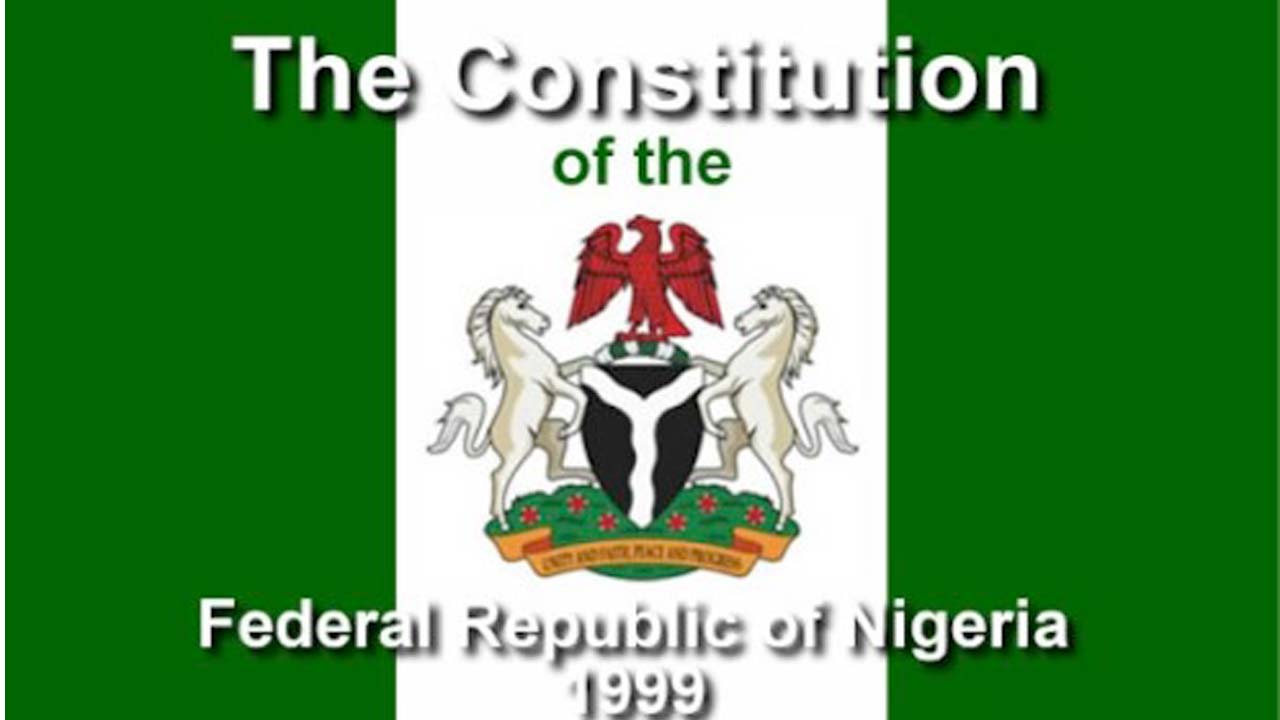As we embark on another constitutional review exercise
The National Assembly has embarked on another round of review of the 1999 constitution apparently in response to the widespread and strident clamour for such a dispensation. In the course of the new exercise, the National Assembly is conducting public hearing sessions across the six geo-political zones to harness insights on the trending weaknesses of […]

The National Assembly has embarked on another round of review of the 1999 constitution apparently in response to the widespread and strident clamour for such a dispensation. In the course of the new exercise, the National Assembly is conducting public hearing sessions across the six geo-political zones to harness insights on the trending weaknesses of the extant constitution. The most dominant issues that propel the fresh review include the age-old criticism that it was foisted on the country by the military administration at the point of its withdrawal from politics in 1999, widespread dissatisfaction with outcomes from previous constitution review and amendment exercises, the deafening calls for political restructuring of the federation as well as the rash of secessionist tendencies across the country which escalate fears that the future of Nigeria as one indivisible country may be compromised.
In fact, the prevailing circumstances portend the outbreak of widespread hostilities and perhaps a full-blown civil war from which the country may not recover as one indivisible entity.
- Sorrow at SCOAN as Buhari, Jonathan, others mourn T.B Joshua
- 19 killed in Kaduna, Bauchi road crashes
These factors may have accentuated the critical significance of the current exercise and are also relied upon by the National Assembly to justify it, even as there are misgivings in several quarters that the dispensation is nothing but a jamboree. Topical among the misgivings is the intervention of the Northern Elders Forum (NEF), who since last year had argued that the sum of N1 billion earmarked for the exercise was a huge waste of money when considered along with other pressing national issues like the insurgency in the north. Other arguments against the exercise hinge on limited dividends from past exercises, especially during the tenures of former presidents Olusegun Obasanjo and Goodluck Jonathan. So, it is safe to say the current exercise was not greeted with much joy or expectation when it commenced as many Nigerians have given up on any amendment to the 1999 constitution.
Meanwhile, among other major contentions that have come up with the new exercise is the argument for a brand new constitution instead of an amendment of the extant one. This view was countered by the co-chairman of the joint Committee, Deputy President of the Senate, Ovie Omo-Agege, who argued against a brand new constitution as all that is required in respect of a contested constitution is the implementation of approved changes in it. Interestingly, while the proponents for a new constitution advocate the convoking of a fresh national conference that will enjoy the participation of as wide a field of stakeholders as possible, this same contention draws into context the outcome of past talk shops like the Political Reform Conference under former President Olusegun Obasanjo, the National Conference under President Goodluck Ebele Jonathan, both of which produced copious reports that are still gathering dust on government shelves.
Yet, another angle is the vexed issue of restructuring of the federation, which has generated so significant traction that many stakeholders easily cite it as the most important factor that will determine if the 2023 general polls will hold. With the foregoing, there is, therefore, a demand for a higher level of discretion and seriousness from the National Assembly, as this time around, Nigerians are not disposed to tolerate any lapses. The lawmakers need to justify the money allocated for the exercise and the hours spent on public hearings by producing sustainable results in the form of changes in the constitution. It has almost become a tradition for every assembly to embark on constitution review, yet with no results and this is unacceptable. Incidentally, there are some areas of consensus like state police and devolution of powers that can easily be addressed. Other novel areas of concern that may emerge from the nationwide public hearings are also required to be handled with dispatch while putting into consideration the need for the country to remain united. This exercise cannot be inconclusive, like the ones before it. In fact, this should be the last effort at amending the 1999 constitution.
